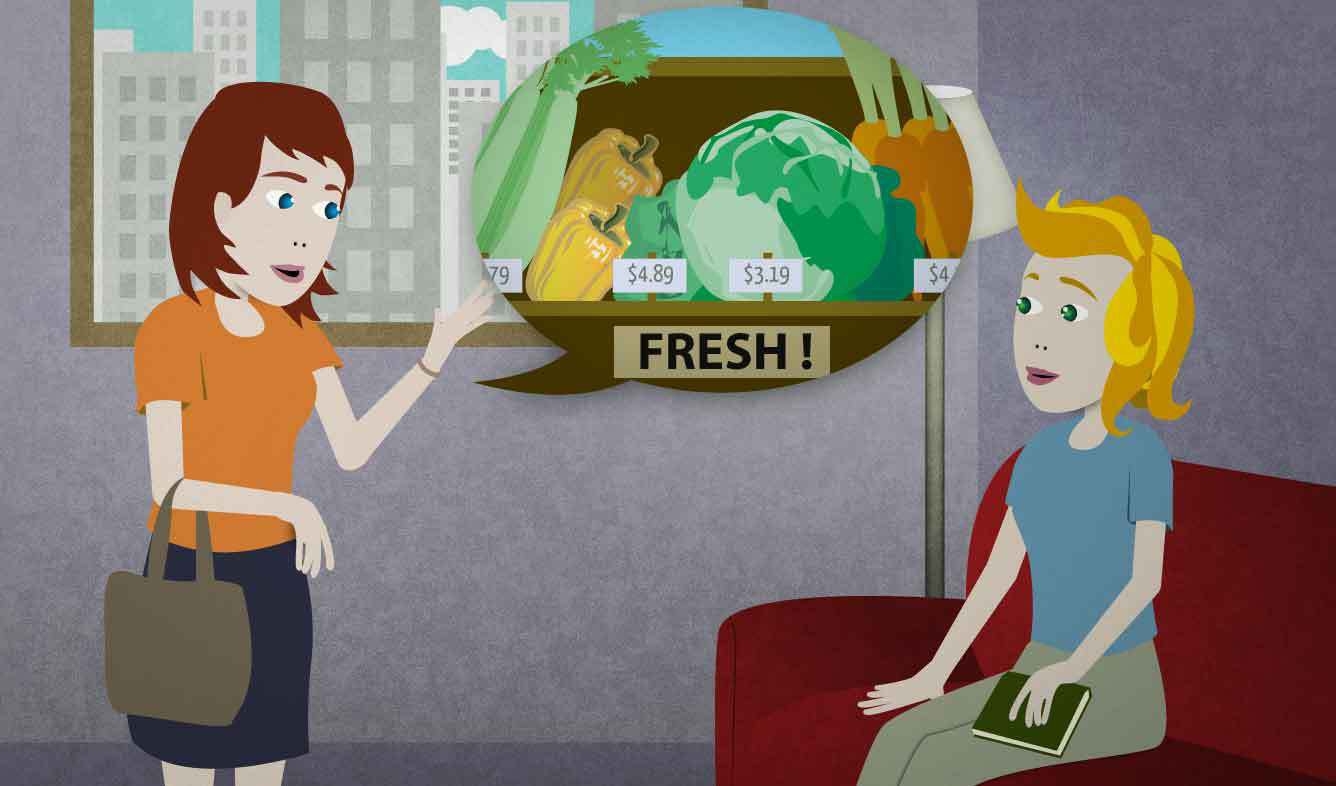“I'm going to go check out the farmer's market in Union Square, if you want to join me.”
It's Saturday morning. You're getting ready to leave your apartment. You invite your roommate to come with you.
I'm going to go check out the farmer's market in Union Square, if you want to join me.
Want Video and Sound? Follow us on YouTube

go (do something)
In casual speech, you say "go (do something)" to mean "go (somewhere) and (do something)". For example:
Do you want to go see a movie?
This means to go to a movie theater and watch a movie.
Could you go find me a screwdriver somewhere?
This means to go to the place where tools are kept and find a screwdriver for the speaker to use.
(someone) is going to (do something)
You use "going to ___" to talk about what will happen in the future. "Going to ___" is more natural than "will" for most situations where you're expressing someone's plans to do something:
They're going to meet us at the airport.
I'm just going to stay home and relax this weekend.
English learners often over-use "will" when "going to" would be more appropriate. In general, when you want to talk about something that you've already decided to do, use "going to":
Next up is Steve. He's going to walk us through the new home page redesign.
Starbucks announced that they're going to offer free Internet access at all their locations.
If you've just decided something and want to announce your decision, use "will":
check out (something)
One meaning of ‘check out,’ is to look at or explore something, for the first time.
Hey, check out this video!
You can say “check (something) out”. For words like “it”, “them”, and “she,” this order is required.
I’ve heard a lot about that band. I really need to check them out.
For longer phrases, it’s better to keep “check out” together:
I really want to go check out that new coffee shop on Broadway.
Like many phrasal verbs, "check out" is a bit informal. You’ll hear this phrase quite frequently in English, especially among younger people.
farmer’s market
A “farmer’s market” is a place where you can buy fruits, vegetables, and other natural products. Unlike a supermarket, a ‘farmer’s market’ is usually outside, is held once a week, and farmers sell their produce directly to shoppers. Usually, the fruits and vegetables come from smaller farms who use fewer chemicals. These markets are popular for people who want high quality produce.
My new apartment is three blocks from the farmer’s market, so I stop by and pick something up almost every week.
I hope there’ll be blueberries at the farmer’s market next week.
I’m (doing something) if you want to (come / join me / etc.)
This is a low-pressure way to invite someone to do something with you:
A: I’m going furniture shopping on the East Side this weekend if you want to join me.
B: Sure, I’d love to!
To “join” someone means to do an activity together. We use “if you want to join me” as an indirect offer. The real meaning is “...and if you want to join me, you are welcome to.”
Instead of "join me", you can say “come” or “come along”:
I’m going to their concert next week if you want to come.
